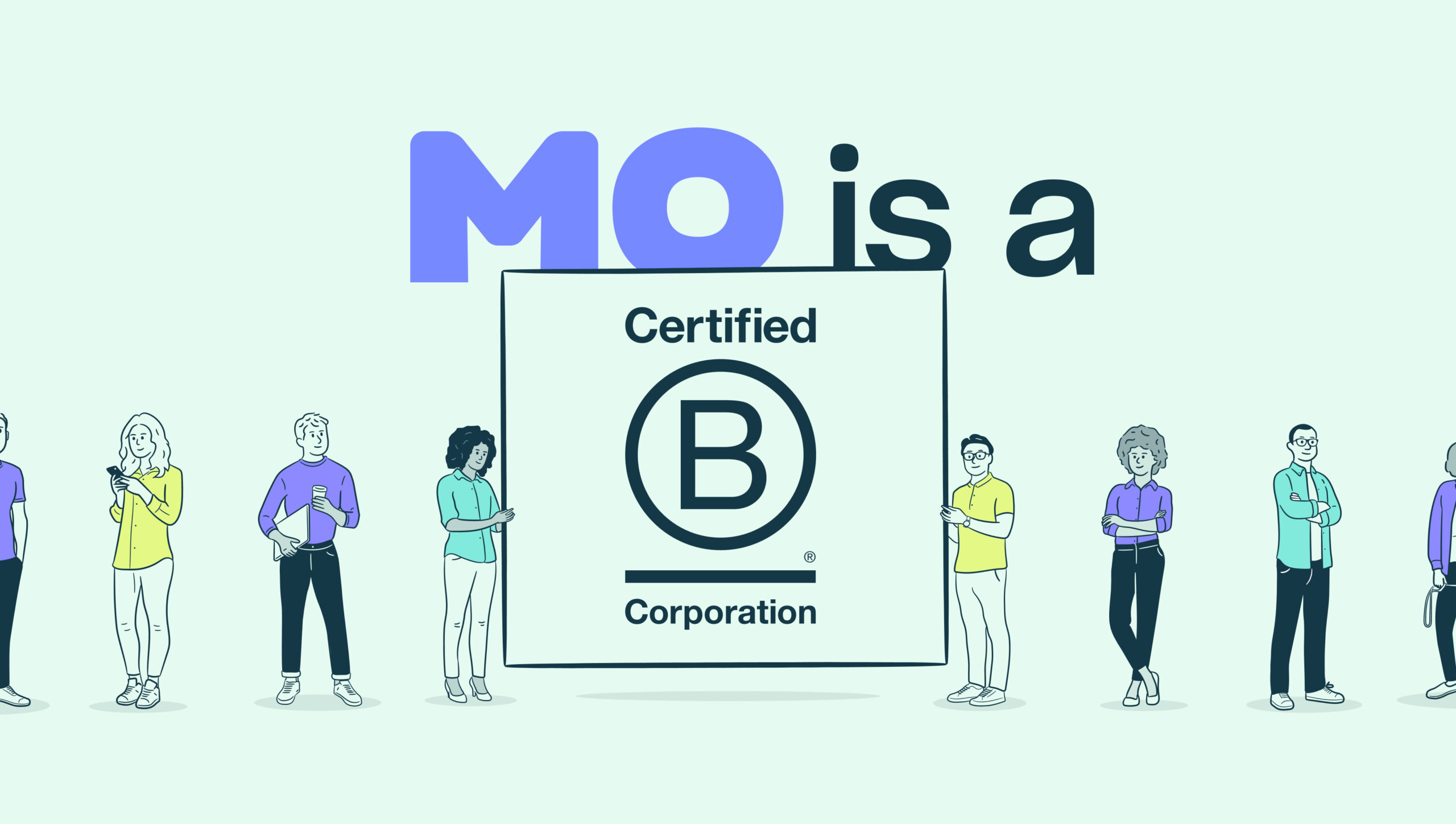The choice to become a B Corp
We were delighted to receive our full B Corporation certification this month – the output of a year-long accreditation process.
We started the B Corp certification process very early in our life as a company. We were a ‘Pending’ B Corp during 2023, an interim category only available in your first year of trading. We started the process as soon as we launched: a statement of intent about what was important to us.

For us, B Corporation certification was to be part of our company’s foundations.
Our view was clear. Good intentions are nice, but unless crystallised and formalised can be sacrificed when times get challenging. B Corp demands hard evidence, across all areas of the business, that you are putting your time, effort and budget into building a business that considers 360-degree impact with each and every interaction.
Entrepreneurship offers an incredible opportunity to build the organisation you believe is missing from the world. With this comes the freedom to create something that is true to your values, passions, and creativity.
Entrepreneurship is also the way for small teams to have the greatest impact on society. This impact can be constructive or destructive, enabling or exploitative, inspiring or terrifying, open or hidden.
Within the vast playing field of entrepreneurial opportunity, it is up to the founders, builders, and leaders to determine what to prioritise.
At Mo.health, we choose love ❤️.

What is a B Corp?
B Corporation certification is a kite mark, demonstrating that an organisation has met the criteria to take into consideration all stakeholders in its decision-making.

There are over 7,000 certified B Corporations globally, and over 1,500 in the UK alone.
Every organisation that carries the B Corp label has gone through a rigorous review process, making the commitment to create positive social change in its actions, and to consider all stakeholders when making decisions.
The Process to becoming a B Corp
Becoming a B Corp starts with a legal commitment. Specific clauses need to be written in to the Articles of Association to:
- Create a material positive impact on society and the environment through your business and operations.
- Consider all ‘stakeholder interests’ when making decisions – including your shareholders, employees, suppliers, society and the environment.
This legal commitment is no small matter.
Investors must consent to a formal declaration that you are going to balance their economic returns against a consideration of the needs of all other stakeholders: team, customers, suppliers, society, and the environment.
There may be trade-offs that hit the bottom line.
Alongside the legal commit, comes the evidence. An extensive due diligence process is required to prove that you are delivering your commitment to social and environmental performance. This is the B Impact Assessment, during which a team of analysts will assess your evidence.

Some specific areas that applicants need to consider: what is the pay gap between the highest and the lowest paid team member? Do you assess the environmental impact of your supply chain? What do you actually do as an organisation, and is this impactful?
You need to present your case with evidence: staff surveys, transcripts of performance reviews, information about your suppliers, training materials, impact reports, policies, and so on.
In total there are 174 questions to complete, each scored and tiered to assess how you stack up against global best practice.
The point is not to simply say that you are doing good, but to actually do it.
We were delighted to receive a score of 87.4 in our assessment. The median score for ordinary businesses who complete the assessment is currently 50.9.

Why become a certified B Corp?
B Corporation certification is not the end but the beginning of creating societal impact.
It is a foundational stone, writ into the very Articles of Association of the company. A legal commitment to complement an ideological one.
Technological innovation is messy. The term disruptive, no longer fashionable after over-use, still speaks to change and upheaval that has the potential to cause waves of negative externalities alongside new experiences and economic progress.
B Corp tempers this, making teams and Boards accountable on new criteria, and making it a requirement to report on impact.
This is a powerful signal about decision-making and priorities at your company.
The business case for becoming a certified B Corp
B Corp certification is a way to publicly claim an identity as an organization interested in both shareholder and stakeholder success. Having a clear identity can help communicate social and environmental values to the world – whether suppliers, team members or customers.
In an age of information overload, such signals are a valuable shorthand.
There is also the community. B Corp is a large and growing network of organisations with shared social and environmental values – to learn from, trade with, and build alongside.
B Corp certification demands diligence on your supply chain, so it makes sense for B Corps to buy from other certified B Corps.
Finally there are some incredible stats relating to B Corp performance. From B Lab UK: certified B Corps have outperformed the wider economy on many key indicators: 26% growth vs 5%; 8% staff attrition vs. 16-20%; 14% headcount growth vs. 1% national average; 43% securing R&D tax credits vs. 6% for UK SMEs.
Correlation or causality? No way to tell. But it clearly shows that there are many ambitious, thoughtful, and well-run businesses in the community.
Should you become B Corp certified?
B Corp certification is a serious commitment. It took us a full year to go through the application and certification process.
There are also many business types, industries, and company structures that are inadmissible to the B Corp community. Arms dealers and hazardous waste producers are not able to apply.

However, if you are building a company with a positive social and environmental impact on society, and if you believe that business can be conducted in a way that drives positive gains throughout society, we would recommend exploring B Corp certification.
We would love to chat if so. Please don’t hesitate to reach out to us at [email protected] if you want to chat about becoming a certified B Corporation.





